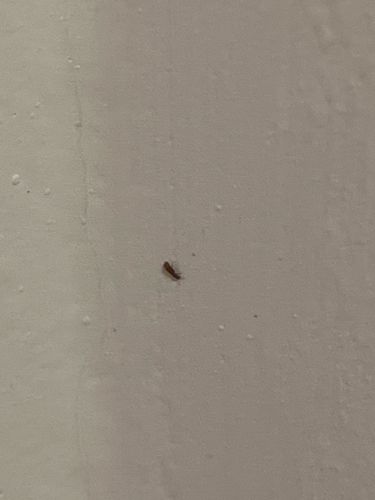Booklouse
Scientific Name: Various species in the order Psocoptera
Order & Family: Psocoptera (Booklice and Barklice), several families
Size: Typically 1-2 mm, though some species can be larger.

Natural Habitat
Damp, dark, and undisturbed environments, such as around books, papers, stored food products, wallpaper, and areas with mold or mildew.
Diet & Feeding
Mold, mildew, fungi, starch-based materials (book bindings, wallpaper paste, flour, cereals), insect fragments.
Behavior Patterns
Nocturnal, prefer high humidity. They are generally scavengers and are not considered dangerous. They move relatively slowly and are often found in groups. They reproduce quickly in favorable conditions.
Risks & Benefits
Potential risks include damage to books, papers, and pantry items if infestations are severe, as well as contributing to allergies in sensitive individuals. They do not bite or transmit diseases to humans or pets. They have no significant benefits, other than acting as a biological indicator of high humidity conditions.
Identified on: 9/23/2025